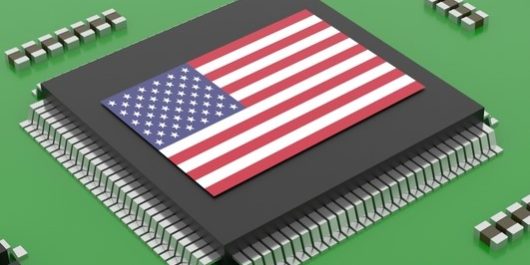How the CHIPS Act Boosts the Supply Chain
Editor’s note: This article first appeared in EETimes. Reproduced from EPS News.If there is any infringement, please contact me to delete.

Chip makers Intel, Micron, Samsung and TSMC have announced plans to build foundries in the United States thanks largely to the CHIPS Act, which aims to rebuild America’s prowess in semiconductor manufacturing. From a supply chain standpoint, said Peggy Carrieres, VP of global sales enablement and supplier development for distributor Avnet Inc., the effort should go well beyond securing a domestic supply of ICs.
“If you look at it from a holistic point of view,” she said, “the act acknowledges how important this technology is to the lifeblood of industry. It’s also intended to future-proof the semiconductor industry and set it up for sustainability.”
At issue is America’s dependence on foreign sources for materials and services critical to chip production. China controls most of the rare-earth elements (REEs) used in high-tech products. China and Japan produce a significant amount of silicon and silicon wafers. Ukraine supplies most of the neon gas used in chip-manufacturing equipment and IC test and packaging services are highly concentrated in Southeast Asia.
“What concerns me is the lack of alternatives in the current model,” said Tom McDonough, senior director of supply chain at Anaplan. “If we are dependent on a single source for critical materials or those materials are highly concentrated in a single region, any disruption – be it a natural disaster or political unrest – will have a drastic impact on the availability and price of those goods.”
These limitations were laid bare during the Covid-19 pandemic and Russia’s invasion of Ukraine, but the chip shortage that began in early 2021 paralyzed production lines across industry sectors. Chip capacity was the main problem, but supply chain disruptions, a dearth of skilled labor and unreliable logistics have also plagued the industry.
Tech companies innovate, Carrieres points out, but these efforts are fractured and take place within multiple sectors. The CHIPS Act offers a way to unify around a common problem: a national semiconductor ecosystem.
Recommend
-

-

QQ Zone
-

Sina Weibo
-

Renren.com
-

Douban
recommended for you
-

Cirrus Logic recently announced cooperation with Intel and Microsoft
-

China's Integrated Circuit Imports Fell for The First Time in Nearly Two Decades!
HK JDW
-

STMicroelectronics STM32C0 series MCUs are Now in Mass Production and Available
-

The "European Chip Act" Shall Complete Legislation, and China Is Facing Greater Challenges in The Future
-

Next Five Years, the Development prospect of China's New Energy Vehicle Market will Remain Optimistic

